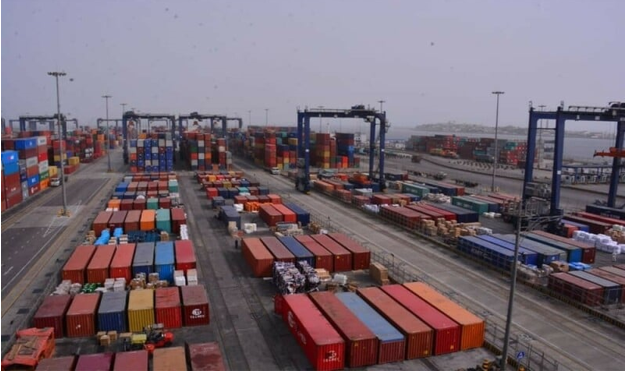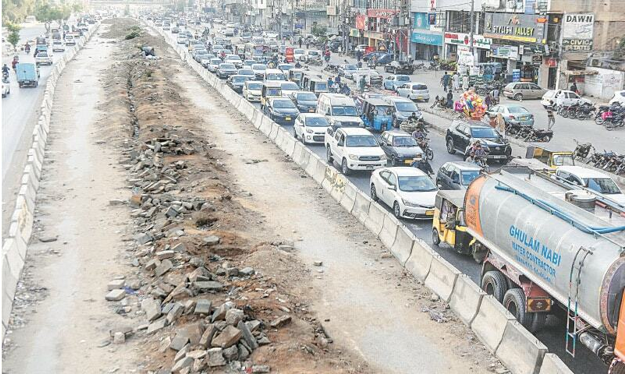INP-WealthPk
Ahmed Khan Malik
Port operations in Karachi face persistent delays, increased transport costs, and growing frustration among traders and logistics companies due to the crumbling road infrastructure.

The deteriorating road network around the Karachi Port and Port Qasim has become a major bottleneck for the country’s import and export activities, prompting renewed calls for urgent government intervention.
Karachi’s ports — vital arteries for nearly 60% of Pakistan’s trade — continue to operate under strain. Until substantial improvements are made to the road infrastructure surrounding them, the flow of commerce is likely to remain slow, costly, and unpredictable.

According to industry stakeholders, a large portion of the roads leading to key terminals — including West Wharf, East Wharf, and major container depots — have fallen into disrepair over the past several years. Heavy vehicles carrying cargo containers often navigate uneven surfaces, deep potholes, broken drainage lines, and frequent waterlogging.
These conditions have resulted in traffic jams stretching for kilometers, delaying the movement of goods to and from the ports. Transporters report that what should be a 10- to 15-minute journey from a terminal to the city’s main arteries now takes more than an hour during peak congestion. “The roads around the ports are simply not built to handle the volume and weight of modern container traffic,” said Sher Khan, President of Karachi Goods Carrier Association.
“Every day, trucks break down due to road damage, and every breakdown adds to the logjam. The situation worsens after rainfall because drainage is either blocked or completely dysfunctional.” He said delays are increasing the cost of doing business. Demurrage and detention charges — penalties imposed for late clearance and return of containers — have risen significantly. Importers have complained that shipping lines are unwilling to waive these charges, even when delays are caused by chronic congestion outside the port gates rather than inefficiency within the terminals.
“The port itself is working efficiently, but once the cargo leaves the terminal, that’s where the real problem begins,” said Arshad Jadoon, a customs clearing agent at Karachi Port. “Clients hold us responsible for delays, but we spend hours stuck in traffic caused solely by broken roads. This is hurting trade and damaging Pakistan’s reputation in global markets.” He said that exporters are also feeling the strain, with many reporting missed deadlines and increased shipment risks as unpredictable transit times are undermining their commitments to international buyers.
Port Qasim has seen similar challenges. Although the infrastructure around it is comparatively better, expansion in port operations and industrial zones has outpaced upgrades to the surrounding road network. Traffic from heavy trailers frequently spills onto National Highway and adjoining industrial routes, causing congestion that affects industries operating in the area.
Anwar Shah, a maritime affairs expert, said that the inefficiencies created by inadequate infrastructure are ultimately borne by consumers. “Rising transportation costs translate into higher prices for imported goods and reduced competitiveness for Pakistani exports.” He emphasised that improving port-linked infrastructure is crucial for economic stability, particularly at a time when the government is attempting to boost trade volume and attract foreign investment.
Credit: INP-WealthPk













